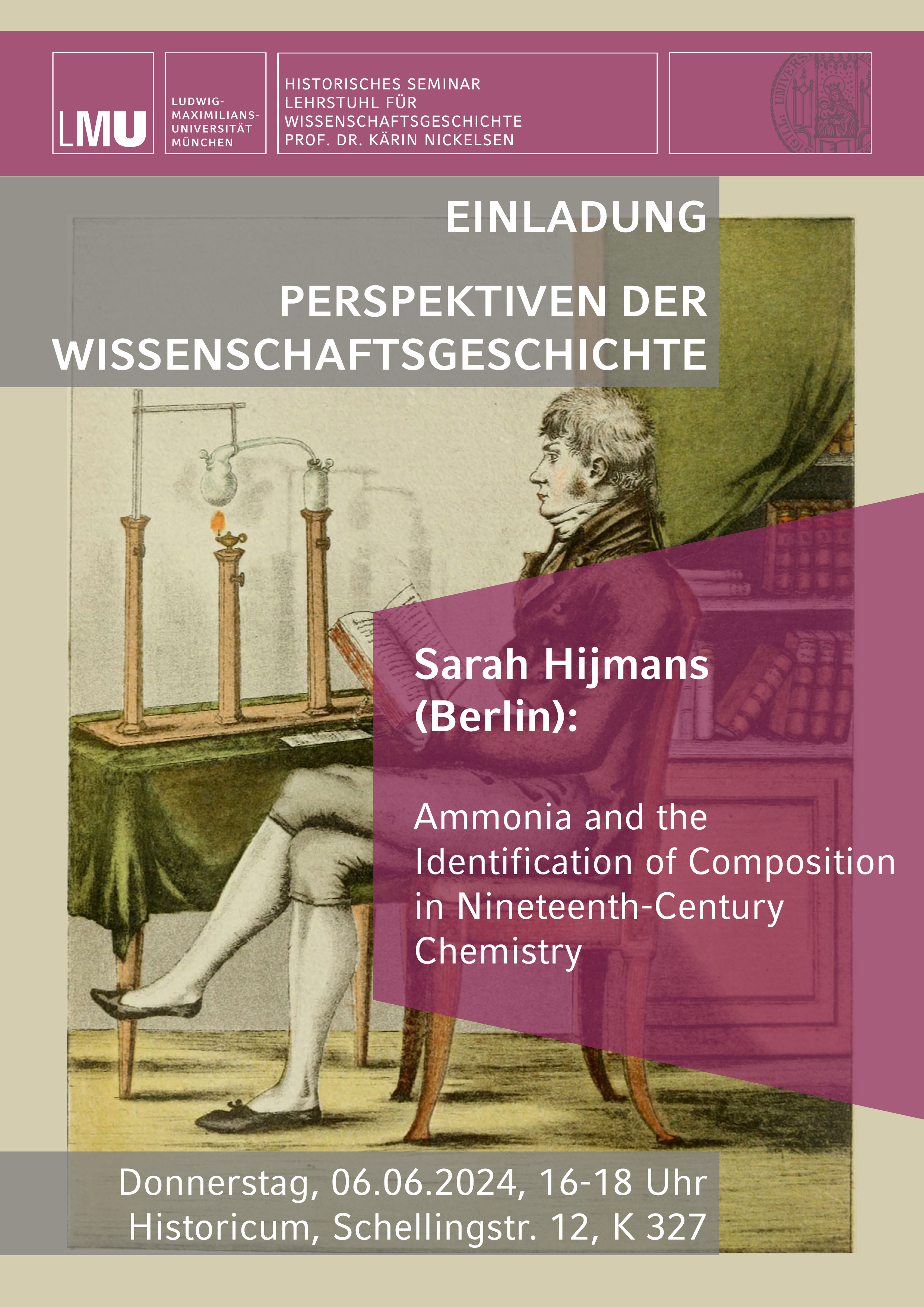Sarah Hijmans (Berlin)
Ammonia and the identification of composition in early nineteenth-century chemistry
06.06.2024 16:15 Uhr – 17:45 Uhr
Ort: Historicum, Schellingstraße 12, K327
Zeit: 16-18 c.t.
In his 1812 textbook Elements of Chemical Philosophy, the English chemist Humphry Davy explained that “as far as our knowledge of the nature of compound bodies has extended, analogy of properties is connected with analogy of composition”. Indeed, Davy and his contemporaries regularly relied on the link between a substance’s behavior and its composition in order to choose the most likely interpretation of an experimental result, and sometimes even to predict the composition of indecomposable substances. But what happened in cases where this link broke down?
In this talk, I will analyze early-nineteenth-century works on the composition of ammonia in order to study this question. Although it appeared to behave like a metallic oxide, repeated attempts to decompose ammonia showed that it only contained nitrogen and hydrogen. Focusing on the years 1807-1820, I will show how Davy and his Swedish colleague Jöns-Jacob Berzelius attempted to make sense of these contradictory results. The properties of ammonia led them both to postulate the existence of a metal called ‘ammonium’ and to question the elementary nature of nitrogen and hydrogen. While historians have dismissed this inference as an “embarrassing mistake” that was “unhappily based on problematic analyses”, I will argue instead that the story of ammonia provides an interesting case study for the relation between experimentation, classification and analogical reasoning in early nineteenth-century chemistry.
Vortrag im Rahmen des Oberseminars "Perspektiven der Wissenschaftsgeschichte"


